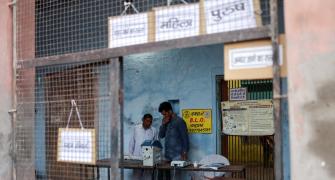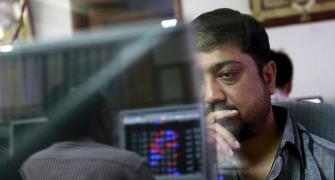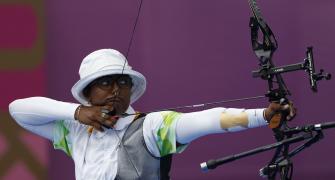SolarChill, a vaccine cooler developed by Rajendra Shende under the United Nations Environment Programme, promises to be viable eco-friendly solution which replaces the lead batteries and the ozone depleting chloro-fluro-carbons used in conventional refrigerators.
Paris-based Shende, the head of UNEP's OzonAction Branch, is in the capital to deliver two units of SolarChill to its first Indian customer -- President A P J Abdul Kalam, who proposes to install them at the clinic in the Rashtrapati Bhavan complex.
"SolarChill does not use lead batteries or kerosene used in conventional solar chillers. Instead, we use the sun's energy to create a thick layer of ice which helps in maintaining temperature in the cooler between minus two degrees and eight degrees celsius," Shende told PTI.
Shende hit upon the idea during his travels in Burkina Faso in 2000. "I thought that if we could develop a vaccine cooler that uses the solar energy so abundant in Burkina Faso and other developing countries, it would be a boon for vaccination programmes implemented there," he said.
Shende said he thought of an affordable, eco-friendly version of solar coolers as he was already working with WHO on ozone depletion. "As the lead batteries are toxic, difficult to carry, and need replacement every three to five years, we decided to utilise to create ice box within the refrigerator that will provide the required insulation even during night," Shende said adding that in the absence of the sunshine, SolarChill can sustain for four to five days.
He said the cooling unit, too, did not use regular freon-based chemicals, which deplete ozone and add to global warming. One unit can serve the vaccine needs of some 50,000 people.
The units will be available for commercial manufacture by 2007, Shende said. Shende's idea was jointly taken up by UNEP, UNICEF, WHO, the Danish Technological Institute, Greenpeace, GTZ Proklima, and Programs for Appropriate Technologies in Health.
Refrigeration companies Vestfrost and Danfoss took part in the development of SolarChill, which took place in Senegal, Indonesia and Cuba.








